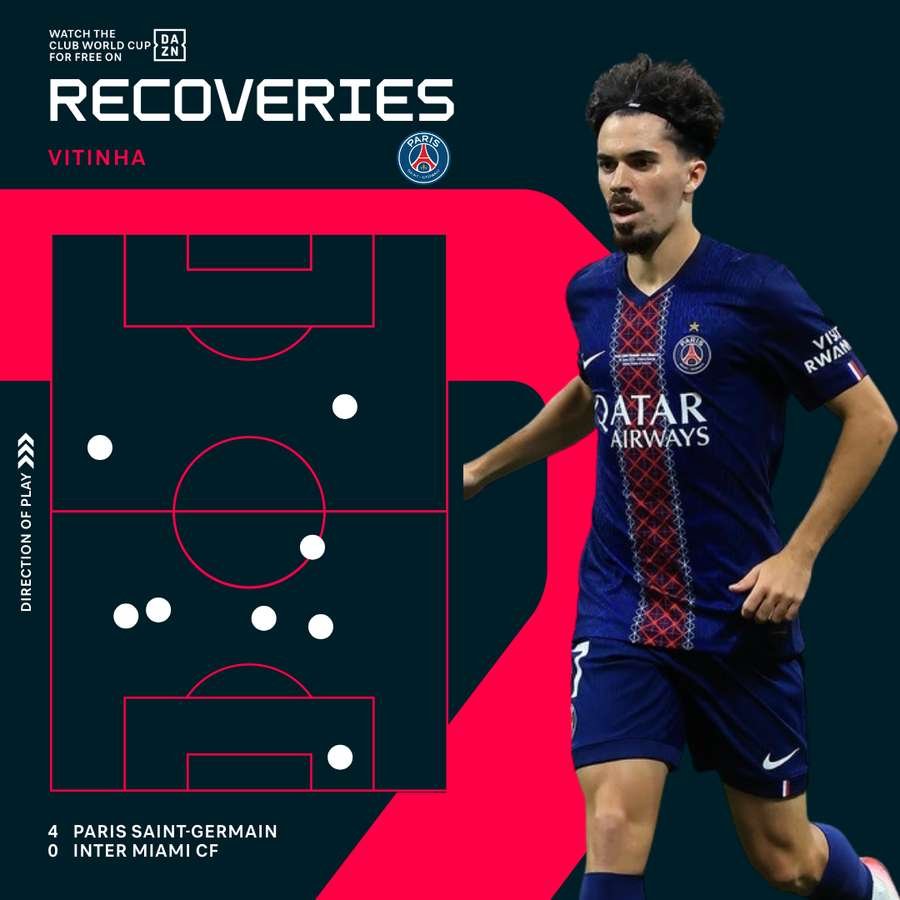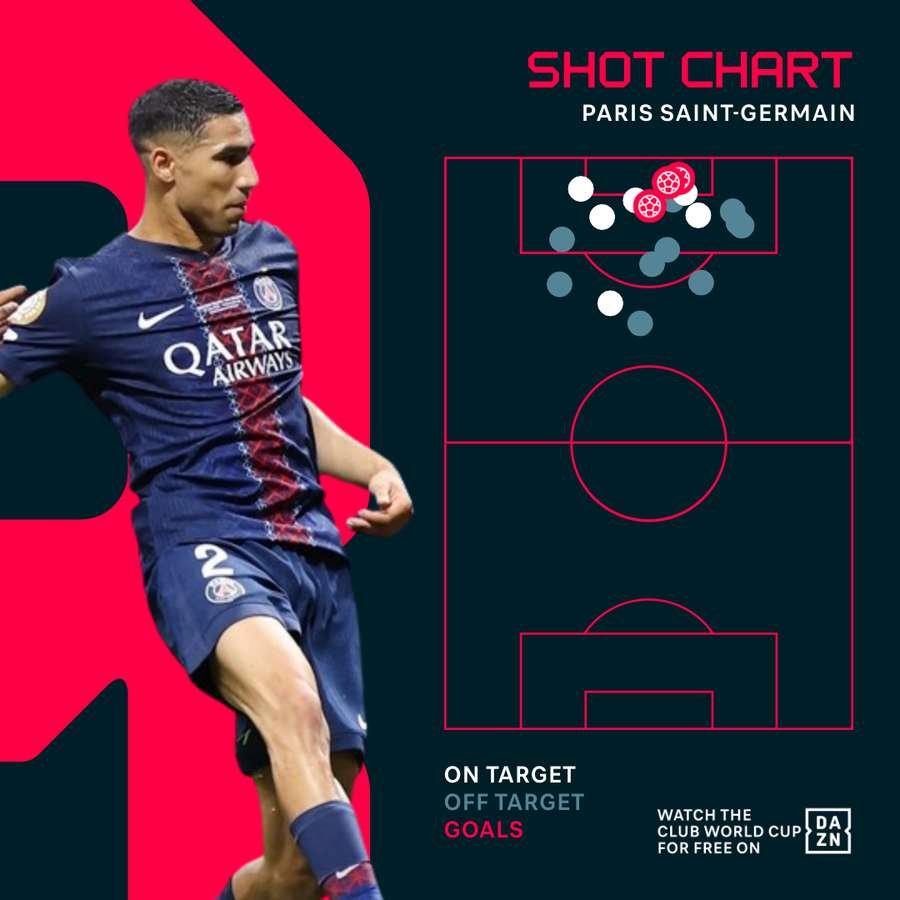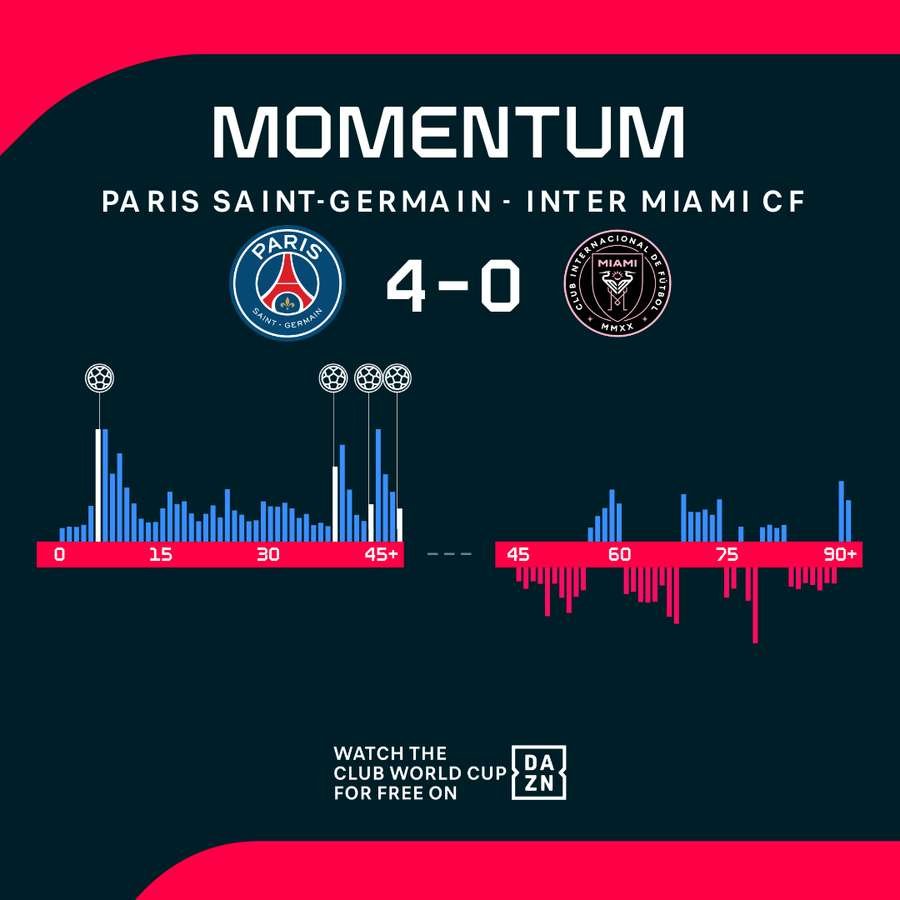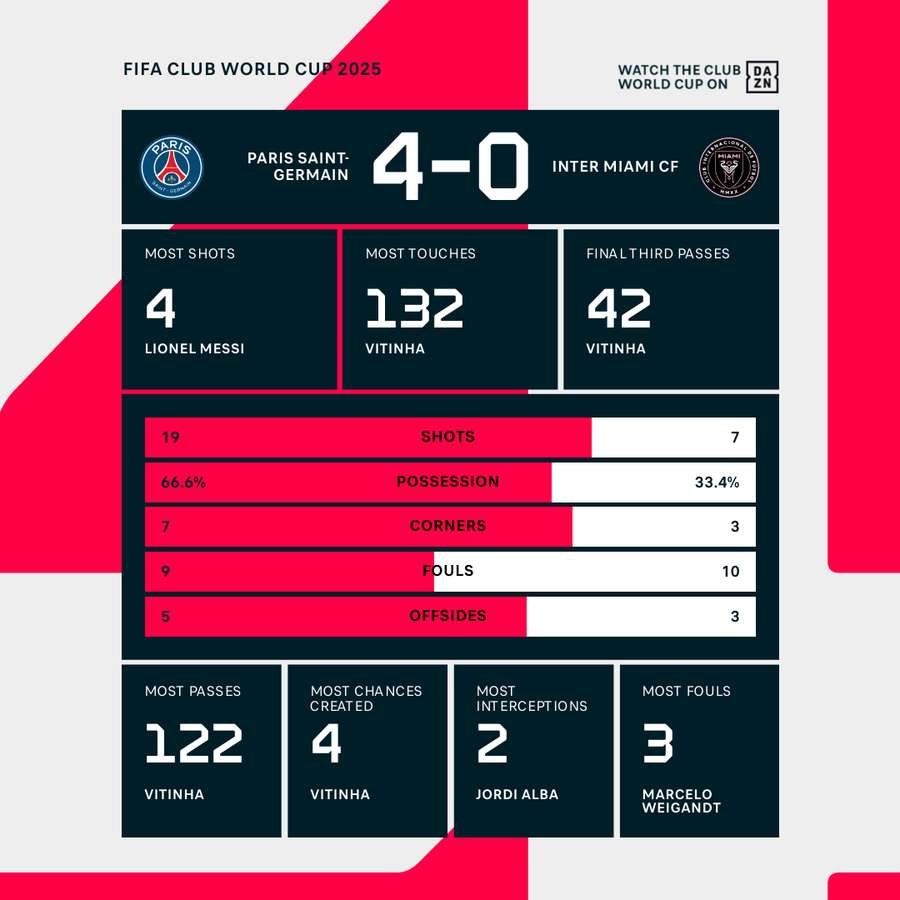On Sunday afternoon, the Club World Cup match featured a thrilling reunion between Paris Saint-Germain (PSG) and former star Lionel Messi, as the Ligue 1 heavyweights clashed with Inter Miami.
It was quite a surprise to see the MLS side reach the knockout stages, largely thanks to their inspirational captain, whose remarkable free-kick against Porto secured their advancement.
High Hopes for Another CWC Victory
The tournament had already delivered several significant victories, and ahead of the match, discussions primarily revolved around the margin of PSG’s victory rather than the possibility of an upset.
The European champions had demonstrated their potency throughout the 2024/25 season, while Miami struggled to find their rhythm.
Messi, who triumphed in the Champions League under Luis Enrique alongside Luis Suarez in 2015, would have fully understood the kind of challenge PSG would pose.
Would the artificial surface at Mercedes-Benz Stadium and the ‘home’ advantage for Miami serve as equalising factors?
_______________________________________________
Sponsored:
FIFA Club World Cup – Enjoy every match for free, exclusively on DAZN.
Sign up here to start streaming.
_______________________________________________
Early Indications Post-Kick-off
The match commenced with an unusual kick-off as PSG kicked the ball straight out for a goal kick, failing to gain any territory as Oscar Ustari sent it back swiftly.
Within just two minutes, it was clear that Inter were employing a sturdy 4-4-2 formation to counter PSG’s dynamic 4-3-3 setup.
Kvicha Kvaratskhelia made a dazzling run into the box that deserved a goal, yet Ustari was equal to the challenge as he thwarted a pass intended for Bradley Barcola.

A free kick awarded for a foul on Desire Doue found an unmarked Joao Neves at the back post, and he headed PSG into the lead, marking a perfect start for the French side. With 85 minutes left, it already felt like an uphill battle for Messi and his teammates.
Ten minutes into the match, the sheer difference in quality was apparent.
Inter Miami struggled to break out of their half, holding just 23.9% of possession while attempting only 35 successful passes against PSG’s 122.
Workhorse Noah Allen Exits with Injury
Seven players from Miami managed to maintain a 100% passing record, although this was largely due to their limited touches, with PSG goalkeeper Gianluigi Donnarumma yet to make a save.
Fabian Ruiz thought he had doubled the PSG lead shortly after the 15-minute mark but was ruled offside as the one-sided affair continued.
Noah Allen, who had completed the most passes for Miami with 11, was forced off the field due to a hamstring injury, and his substitute, Tomas Aviles, picked up a booking within a minute of coming on.

It would take another 25 minutes before Miami ventured into PSG’s half, and their chances amounted to nothing. With so many players pushed forward, PSG countered swiftly.
Achraf Hakimi (five touches in the opposition box), Barcola (four), Nuno Mendes, Doue, and Kvaratskhelia continued to toy with Miami, yet PSG only had Neves’ goal to show for their dominance.
Aerially, Miami excelled, winning all of the headed duels, yet they offered little resistance against a PSG side that effortlessly shifted through the gears.
Two Quick Goals Seal Miami’s Fate
After some scrappy play, Neves netted his second following a defensive blunder, marking his first brace for PSG.
Aviles’ next involvement was unfortunate, scoring an own goal in the 44th minute, adding to Miami’s woes, before Hakimi found the net in stoppage time.
At halftime, it was painfully evident that Miami had not had a single shot on target, nor even touched the ball in PSG’s penalty area. They recorded just four touches in the final third.
It raises the question: Is it any wonder the CWC hasn’t captivated audiences as FIFA had hoped, given the stats representing such a clear disparity between the teams?!
The Barcelona connection almost bore fruit just three minutes into the second half as a cross from Jordi Alba was volleyed towards Luis Suarez by Messi, but the Uruguayan’s touch failed him at a crucial moment.
PSG resumed their control, asserting dominance in all aspects of play.
Perhaps the only positive for Inter was Sergio Busquets’ impeccable 100% passing rate, a testament to his enduring quality, albeit in a losing cause.
Miami Left Chasing Shadows
The fluidity with which PSG moved the ball left Miami scrambling to keep up. When the MLS side did manage to push forward, PSG’s defensive prowess matched their attacking efficiency.
With eight interceptions and ten successful tackles in the first hour, Inter struggled to create scoring opportunities.

Ousmane Dembele made his first appearance in the CWC when Neves was substituted in the 61st minute, and it was clear he needed time to find his rhythm after nearly a month off since the Champions League final.
Messi managed to register a shot on target – Miami’s first – while PSG had already surpassed their average of 15.6 shots per match in this year’s tournament, hitting 16 with 20 minutes remaining.

Despite a renewed effort from Miami, who at least enjoyed the advantage of winning more duels than their illustrious opponents, the latter stages of the match saw the game become slightly more balanced as PSG opted to ease off the gas.
PSG can be satisfied with yet another polished display, while Messi and Inter Miami must regroup as they prepare for their next encounter against Montreal in a week’s time.

Compiled by SportArena.com.au.
Fanpage: SportArena.com.au.
LiveScore – Live Sports Results & Odds.




